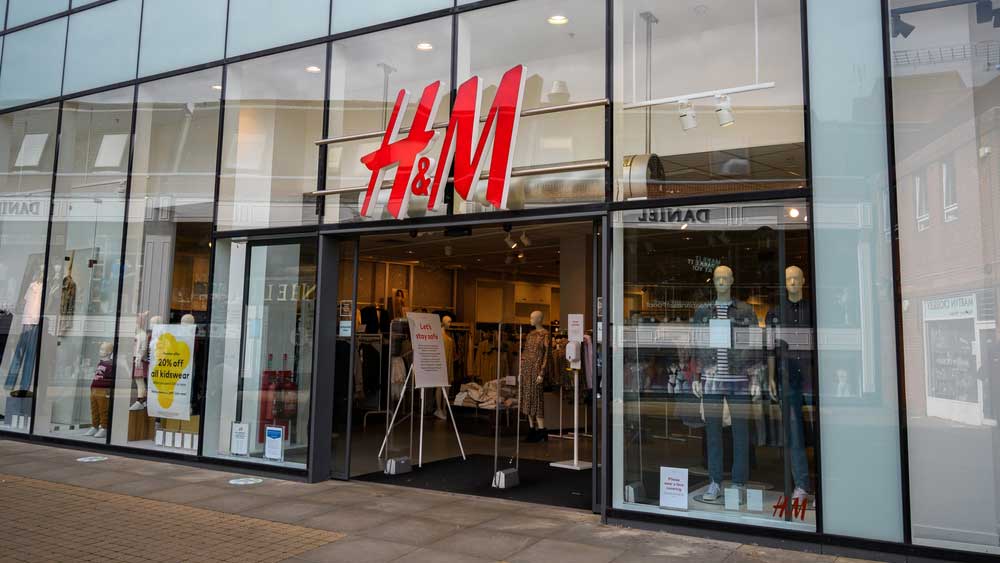Steep price
Sir — Fast fashion is taking a steep toll on the planet. A recent report indicates that a number of popular fashion brands — Coach, H&M, Zara and so on — have supply-chain links with companies involved in the production of leather from cattle raised on recently deforested land in the Amazon. Surprisingly, a third of these companies have policies in place to disengage with such exploitative environmental practices. Clearly, these policies are in name only. Brands must be mindful and transparent about where they source their raw materials from. Unless the industry wakes up to the crisis, most consumers will be left with no choice but to boycott certain brands altogether.
Ananya Chakraborty,
Calcutta
For shame
Sir — Sonia Gandhi must be applauded for condemning the misogynist passage in the Class X English question paper of the Central Board of Secondary Education (“Sonia attacks misogyny”, Dec 14). The board later cancelled the comprehension passage, announcing that full marks for it will be awarded to all students.
It is a shame that at a time when Indian women are breaking the glass ceiling in all walks of life, the CBSE included an essay linking women’s independence to “a wide variety of social and family problems”. If a school education board promotes such regressive opinions, then one shudders to imagine the future of the nation. The CBSE should ensure that such mistakes are not repeated.
Yash Pal Ralhan,
Jalandhar
Sir — The Congress chief, Sonia Gandhi, was right to criticize the CBSE for setting a blatantly sexist question. On the one hand, the Centre is promoting schemes like Beti Bachao, Beti Padhao to uplift women, on the other, a national school board allows a derogatory passage about them in a question paper. Why did the CBSE fail to screen the question paper? This speaks poorly of the board.
Aayman Anwar Ali,
Calcutta
Sir — While it is good that the CBSE has withdrawn the objectionable passage, the incident must act as a reminder for school boards and universities to be sensitive and vigilant. Those who set question papers need to be sensitized immediately.
Sunil Chopra,
Ludhiana
Crowning glory
Sir — The Chandigarh-based model, Harnaaz Sandhu, has become the third Indian to win the Miss Universe crown at the 70th edition of the beauty pageant. Sushmita Sen and Lara Dutta won the title in 1994 and 2000 respectively. This is, undoubtedly, a great achievement.
Sourish Misra,
Calcutta
Sir — Harnaaz Sandhu must be congratulated for winning the Miss Universe title. However, it should be kept in mind that such beauty contests are exploited to boost the sale of cosmetics and other such things by feeding into the insecurities of young women.
Anthony Henriques,
Mumbai
Sir — While Harnaaz Sandhu deserves our best wishes for being crowned Miss Universe, we should also see beauty pageants for what they are — a parade of women tailored to fit unreal ideas of beauty. These contests remind us that only women who have access to certain resources — personal trainers, nutrition coaches and beauty experts — are considered beautiful and worthy of celebration. There is little space for such regressive contests in the modern world.
Anamika Saha,
Calcutta
Gendered care
Sir — The pandemic has laid bare the shortage of medical personnel, especially nurses, in India. More people, including men, should be encouraged to take up nursing as a profession. Around 80 per cent of the nurses in India are women. It is crucial to dismantle sexist attitudes surrounding the profession.
Shruti Sharma,
Ujjain
Pave the way
Sir — It is a matter of pride that the French fashion house, Chanel, has named Leena Nair, an executive from Unilever, as its chief executive officer (“Nair named Chanel CEO”, Dec 15). Hearteningly, many Indians have found their place at the top of the corporate ladder — Sundar Pichai, Parag Agrawal, Shantanu Narayen are all Indian-born executives helming tech giants. Nair’s elevation in a tightly-controlled, family-owned business is remarkable.
But this is also a reminder that it is because of the lack of resources and opportunities in India that such exceptional people choose to work abroad. Further, most corporate offices in India are mired in misogyny, making it difficult for women to perform to the best of their abilities. Corporates must ensure a fair and safe working environment for female employees and proactively encourage them to take up leadership roles.
Bal Govind,
Noida
Sir — The appointment of Leena Nair as the CEO of Chanel proves that determination and hard work can go a long way. Nair began her career at Unilever as a trainee on the factory floor. Young female professionals are looking forward to her stint as the head of Chanel.
Namrata Chakraborty,
Calcutta
Sir — Leena Nair, who was the youngest-ever chief human resources officer at Unilever as well as the first woman to hold that post, will now chart a new course for Chanel.
One of the crucial lessons imparted by Nair’s rise to the top echelons of power is that it is futile to waste energy doing something that we are not passionate about. If we can find a vocation that combines our interests with our capabilities, nothing is impossible to achieve.
Paramita Sarkar,
Calcutta










